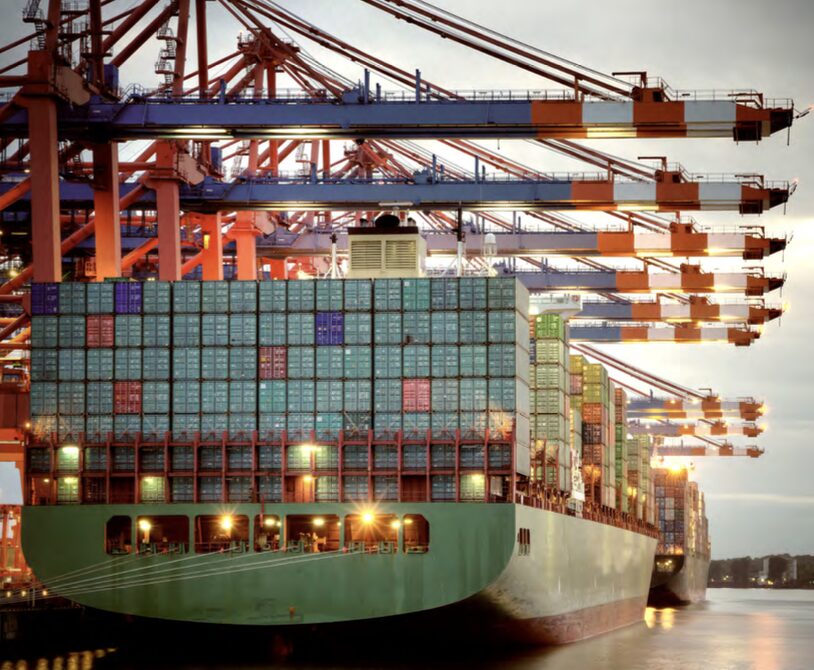The European Climate Risk & Trade Policy Programme

This programme of work ran from November 2022 until May 2023.
What is the ECRT programme?
The European Climate Risk & Trade Policy Programme set out to develop a robust evidence base on how European trade policies and programmes can strengthen the resilience of Europe’s industries, trade linkages and global supply chain networks to cross-border climate risks. The ECRT policy programme sought to develop a strategic partnership between public and private-sector actors across Europe to co-develop capabilities and enable mutual support for the management of cross-border and cascading climate risks in the future to the benefit of all in society.
Background
Europe is home to the world’s largest single market and is one of the world’s most outward-facing economies, but its close connectivity with other regions and countries around the globe renders the continent particularly exposed to the impacts of climate change that manifest beyond its borders – often far afield.
This is partly due to Europe’s high reliance on complex, global value chains and supply chain networks for food and other commodity imports, which frequently stretch into regions of the globe that are particularly vulnerable to climate change. Indeed, recent years have seen a growing number of cases demonstrating how extreme weather events (e.g. droughts and flooding) are increasingly wreaking havoc on global supply chains – with dire repercussions on critical supplies of food- and other commodities.
Cross-border risks for trade and supply chains have become the subject of increased attention among European policymakers and business leaders, in the wake of the Covid19 pandemic, the Suez Canal blockage and the war in Ukraine. These events – in concert – have not only culminated in a cost-of-living crisis across Europe, but also a questioning of the dominant “market-first” approach that has traditionally left it to the markets to ensure resilient supply, and the devolution of critical supply chain governance to private actors.
Furthermore, the market liberalisation of the last 20-30 years has allowed the global economy to become leaner and more efficient, which has delivered cost-reductions for consumers and increased profits for companies, through the centralisation, consolidation, and integration of the global supply chain. While this streamlining of supply logistics has enabled significant improvements across inventory levels, on-time deliveries and shorter lead time, the redundancies that provided buffers against external shocks and disruptions in the past are currently absent, making them far less resilient and more vulnerable to disruptions from climatic and non-climatic risks. In fact, a recent global Deloitte survey showed that over 80% of executives are concerned over climate change, with most citing disruptions to business models and supply networks worldwide from climate-related events as the main concern.
Aims and Objectives
The last 2–3 years have been a rude awakening for European governments and businesses, which found themselves in a continuing state of crisis response to the series of cross-border shocks and supply chain disruptions mentioned above. Yet there remains limited capabilities and capacity across the public and private sectors to put in place anticipatory governance structures or pre-emptive measures to mitigate these kinds of cross-border risks.
The EU and European governments are currently considering the relevant governance mechanisms, institutional capabilities and policy levers needed to better monitor and manage cascading cross-border climate risks, as well as how risk ownership is best assigned across the public and private sector. Yet, governments currently lack a sufficient evidence base to underpin effective governmental strategies and measures for managing cross-border climate risks and their implications for Europe’s supply chain networks. In many cases, they also lack the forum or platform for engaging businesses in a dialogue on the appropriate division of labour between state and non-state actors in this governance space. European governments and businesses must work together to gain better understanding of the threats facing European businesses from cross-border climate risks and in tandem take appropriate steps to manage such risks.
In this context, the aim of the ECRT policy programme was to establish a strategic platform for European policymakers and businesses to:
- Gain insight into the challenges facing the private sector as a result of disruptions to European value chains and supply chain networks from cross-border climate impacts
- Identify and discuss effective strategies, actions and tools that could be leveraged to strengthen resilience across Europe’s trade channel
- Develop a sustained public-private sector partnership to deliver these measures in concert
Partners
The ECRT Policy Programme brought together a small number of European governments and public climate advisory bodies and research institutions to help build a knowledge inventory and develop solutions that can contribute to an effective policy response for the EU and European national governments to strengthen the climate resilience of European trade links and supply chain networks.
The Programme Partners include:
 |
 |
 |
 |
Contact:
For those interested in learning more about the ECRT Policy Programme, please feel free to contact us via: Mikael.mikaelsson@sei.org


Comments
There is no contentYou must be logged in to reply.